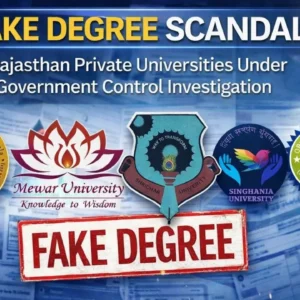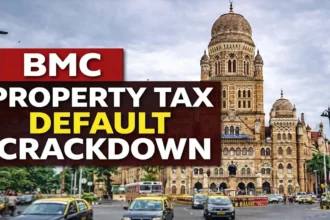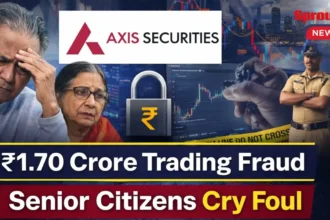SEBI Fines ₹1,860 Crore in Pump-and-Dump Crackdown
• Retail Investors Hit Hard Despite SEBI Action
• Small-Cap Stocks Remain Fraudsters’ Playground
• ₹300 Crore Scam Exposes Weak Investor Safeguards
Unmesh Gujarathi
Sprouts News Exclusive
Contact: +91 9322755098
Sprouts News Exclusive
Contact: +91 9322755098
India’s market regulator SEBI has imposed penalties of over ₹1,860 crore in the past five years to curb pump-and-dump scams that continue to trap retail investors. Despite surveillance, disgorgement orders, and education drives, manipulators persist in exploiting small-cap stocks, highlighting the urgent need for stronger investor protection measures.
India’s market regulator, the Securities and Exchange Board of India (SEBI), has intensified its crackdown on pump-and-dump schemes, imposing penalties worth ₹1,860.03 crore over the last five years. Despite these measures, retail investors continue to lose significant amounts of money to stock manipulation scams in small-cap and micro-cap segments.
Government Data Reveals Extent of Market Manipulation
According to data presented in the Lok Sabha by Minister of State for Finance Pankaj Chaudhary, SEBI has also ordered the disgorgement of ₹452.60 crore in unlawful gains under the SEBI (Prohibition of Fraudulent and Unfair Trade Practices – PFUTP Regulations, 2003).
Between FY20-21 and FY24-25, the regulator received 154 complaints linked to pump-and-dump activities. These schemes typically involve manipulators artificially inflating stock prices through misleading promotions before selling their holdings to unsuspecting retail investors.
Pump-and-Dump Scams Target Small Investors
The Sprouts News Investigation Team (SIT) notes that small-cap and micro-cap companies remain the most vulnerable to manipulation. Many retail investors, attracted by low entry prices, fall victim to exaggerated claims of quick profits.
The recent disclosure also referenced a ₹300 crore pump-and-dump scam that impacted more than 4,000 investors nationwide. SEBI has already launched a detailed probe, with the government assuring Parliament that the investigation will be conducted in a “time-bound and transparent” manner.
SEBI’s Multi-Layered Crackdown Strategy
To strengthen market integrity, SEBI has implemented a surveillance-driven framework that combines monitoring, education, and enforcement. Key measures include:
•Real-time surveillance: Monitoring stock price movements to detect unusual spikes not supported by company fundamentals.
•Investor alerts: Issuing scrip-specific cautionary messages through brokers and trading platforms.
•Awareness campaigns: Conducting nationwide investor education programmes on spotting scams, risks of Futures & Options (F&O), and safe digital practices.
•Collaboration with exchanges: Working closely with stock exchanges and depositories to curb manipulation.
Despite these steps, industry analysts highlight that regulatory enforcement alone cannot eliminate fraud. Continuous investor education and early-warning systems remain critical.
Growing Retail Participation Raises Regulatory Challenges
Post-COVID-19, retail participation in equity markets has surged, particularly in low-priced penny stocks. While this democratization of investing is positive, it has also expanded the playground for fraudulent operators.
The government has indicated that technological interventions such as advanced AI-based surveillance and stricter compliance audits will be deployed. These reforms aim to identify manipulation patterns early, safeguard retail investors, and deter repeat offenders.
Investor Protection Must Remain Top Priority
The Sprouts News Investigation Team (SIT) finds that despite penalties exceeding ₹1,800 crore, fraudulent operators often resurface under new entities, exploiting regulatory gaps. Experts stress that creating a culture of financial literacy is the most powerful long-term safeguard against pump-and-dump traps.
For policymakers, the challenge lies in balancing market freedom with investor protection. As India’s capital markets deepen, SEBI’s vigilance and the government’s reform agenda will play a pivotal role in ensuring sustainable, transparent growth.



















